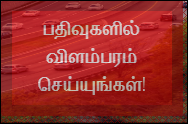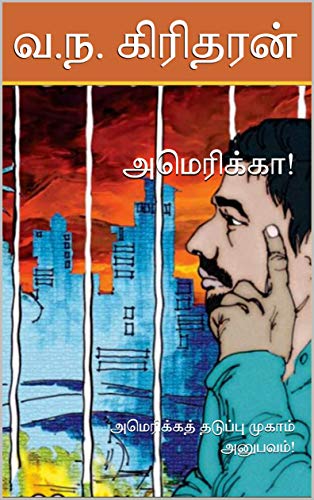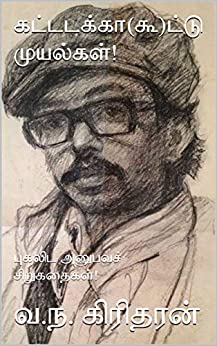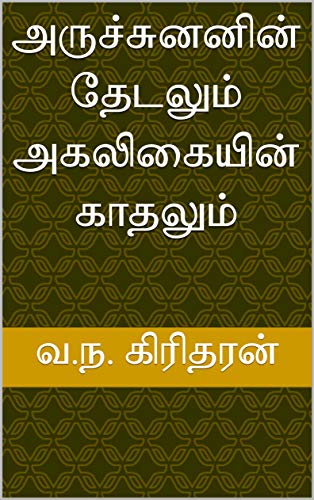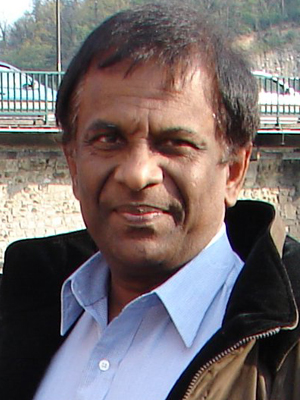 - (Dr Lionel Bopage was the founder leader of the Society for Socialist Culture, better known as “Samajavadee Kala Sangamaya” in Sri Lanka, the cultural front that is affiliated with the JVP (Janatha Vimukthi Peramuna). Lionel became the General Secretary of the JVP later, but in 1984 he officially resigned from the JVP due to the ideological and other differences developed with the leadership. In a collective effort with comrades like Nandana Marasinghe and Ms Sunila Abesekara, he brought “Vimukthi Gee” songs recital into life. Currently he is an activist in diverse social and political activities both in Sri Lanka and Australia.) -
- (Dr Lionel Bopage was the founder leader of the Society for Socialist Culture, better known as “Samajavadee Kala Sangamaya” in Sri Lanka, the cultural front that is affiliated with the JVP (Janatha Vimukthi Peramuna). Lionel became the General Secretary of the JVP later, but in 1984 he officially resigned from the JVP due to the ideological and other differences developed with the leadership. In a collective effort with comrades like Nandana Marasinghe and Ms Sunila Abesekara, he brought “Vimukthi Gee” songs recital into life. Currently he is an activist in diverse social and political activities both in Sri Lanka and Australia.) -
Thank you for the invitation to speak at this important occasion. People are driven by a strong desire to know or learn why things happen in a certain way in a particular culture. Gradually this curiosity expands to looking at how those things happen in other cultures. That curiosity is filled at least partially by the content provided in translated works. With the advent and advancement of capitalism, translated works started filling the gaps in our knowledge base and improving our critical thinking abilities. I believe, the history of translated literature runs back to the times of arrival of Ven Mahinda Thero in Sri Lanka. At later stages, the teaching traditions in Buddhist temples would have been influenced by many inputs from Asian countries and the wisdom travellers and traders brought to the island.
The Buddhist revivalist movement came into being in reacting to the Christian missionary activities in the south. With that came the thoughts of civilizational supremacy of Sinhala people, which were later interpreted in a chauvinistic way. Anagarika Dharmapala declared that the Sinhala language was the best language of the world and the Sinhala civilisation was the noblest. We inclined to consider other languages and nations as inferior. Similarly, Arumuka Navalar, a Shaivite scholar and a polemicist led the Hindu revivalist movement.
Unfortunately, revivalist leaders like them lacked a wider vision for the future. They advocated safeguarding outdated practices such as accommodating the caste system. Most of the Indian leaders, such as Raja Ram Mohan Roy of the Hindu Revivalist Movement and Syed Ahamed Khan of the Muslim Revivalist Movement were quite different. They did not advocate the supremacy of their languages or faiths, but promoted social harmony and goodwill, and reconciliation and solidarity with the other. They advocated discarding outdated practices and rituals of their own faiths in adjusting to the environments of the modern-day.
We could note the lack of effort at the time to translate into Sinhala any renowned foreign literature related to arts, philosophy, science or technology. I will not comment on the Tamil side as I am not so familiar with it. So, no wonder we have such a long period of recent history filled with hatred towards the other, in terms of caste, language, race and religion.
The existence of different languages, religions and cultures in a mutually exclusive and disrespected environment can lead to conflict. Particularly, when political class and the social elite utilise the differences in diverse societies to securing their narrow interests and intricate privileges, no room is left for promoting social harmony and goodwill, reconciliation and solidarity with the other. The current situation in Sri Lanka shows this best. This is not limited to us in Sri Lanka. I hope things will not be in the reverse gear with what is being currently promoted in India.
Literary works including translated work is supposed to move people and societies away from ecstasy to wisdom. Accumulation of various linguistic and cultural translations to one’s own literature supports this process. Such accumulation makes reference to philosophical conceptualisations of other societies. Thus, the literature of a society becomes more nourished, and inevitably, people get accustomed to universal thinking.
During my secondary school days, I remember many Russian novels were translated into Sinhala. These were very popular and played an important role in our development. Yet I can see a problematic situation here. To us, the southerners other than Sinhala and English, Tamil was the next closest language. At school, as Sinhala students, we studied Sinhala and English literature, but we never learnt a single word on Tamil literature or culture. I don’t think the Sinhala Buddhist revival in 1956 was the cause, because even in my primary school days prior to 1956, I do not recollect any Tamil verses being taught.
English literature was so closely tied to the ruling class, and not to the hearts and minds of the ordinary people. Study of English literature did not affect much the day to day lives of the ordinary citizens. From the mid-1900s, the translated works that caught the ear of ordinary people was from the Russian literature. I remember the impact I had on my life by reading Amma, a translation of Maxim Gorky’s Russian novel Мать. This was a novel on the Russian revolutionary movement. However, according to Encyclopedia Britannica, of all Gorky’s novels, it was possibly the least successful one. Yet, records show that globally it has been one of the most influential novels. If my recollection is correct, Ven. Udakendawala Siri Saranankara Thero did the Sinhala translation.
What this shows is the close proximity of the characters of the novel and their lives to the daily lives of so many of us in Sri Lanka and with many people in the former colonies. If someone asks from the people of that era like me, whether we read the likes of Maxim Gorky, Leo Tolstoy, Anton Chekhov, Fyodor Dostoevsky, Ivan Turgenev and Nikolai Gogol, the answer would be a resounding yes. Even today, many authors contribute to enrich Sinhala literature through translated works from languages such as Chinese, French, Spanish, Italian etc., but I will not go into detail due to time constraints.
The Peoples’ Publishing House was the sole distributor of Sinhala and Tamil works of Russian literature, translated, printed and published in the Soviet Union. The US led a huge propaganda campaign island-wide against the influence of these translated works, but the admiration among the people has been unwavering. While the US was using mobile libraries around the island, the Peoples Publishing House actively engaged people by organising mobile book fairs in rural areas. Even to this day, Russian translations are considered to be the most popular and the best sellers among the literary circles in Sri Lanka.
Literature can be thought of as representing the frontal façade of the culture of a society. When literature works of a particular nation is translated into another language, the literature of the latter community gets enriched. Thus, the translated work helps dissemination of culture. However, the issue I would be grappling with is why the commitment we had at the time in disseminating the translated works of Soviet literature, did not in a similar way apply to translated works from Tamil literature and vice versa.
Despite Tamil readership having some interaction with Sinhala literary works, Sinhala readership was in general ignorant of Tamil literary works. A handful of authors such as Messrs Gunasena Vithana, K G Amaradasa and Ratna Nanayakkara contributed to translating literary works from Tamil to Sinhala, but there was no commitment on the part of the Sinhala polity to disseminate such translated work amongst the Sinhala people. We are also aware that during the armed conflict, many Sinhala and Tamil literary creations had become appendages or torchbearers of the war effort. This helped widen the gap between the majority and the rest of the society. Such creations tried to bulldoze the voices of all sides for justice, peace and reconciliation.
I recollect the song Velupillai Aiye, Mata Samaveyan (Velupillai Anna, Eṉṉai maṉṉippai) that comrade Murugapoopathy transliterated into Tamil at the end of the 1970s. In 1978, when we started reciting this song at Vimukthi Gee concerts, we did not know of a Velupillai Pirabaharan that existed at the time. Unfortunately, during the armed conflict, this song had been prevented from being performed at the Songs of Liberation concerts. I can also recollect another song that comrade Murugapoopathy transliterated. It was Uthuru Kone Numba Nandan (Vadakkilai Ala Vendam).
Most of the translated works from Tamil to Sinhala and vice versa appear to have occurred after the end of the armed conflict in 2009. Nevertheless, the disparity between the communities in both physical and emotional terms continue to prevail. Rather, this disparity is allowed to persist so that the political class can make use of it to attain and retain power. Despite the growing number of translated works, their influence on society would remain restricted and feeble unless and until the people, the society and the government realise the enormous significance of social diversity that can be positively, properly and holistically utilised as a major resource.
Translated works will continue to play a major role in thinning out the vast distances that separate us in our diverse communities. Perhaps, the civil society with the help of the Sri Lankan diaspora, the well-wishers and the government of Sri Lanka could formalise a body to guide such work. It could focus on translating from Sinhala and Tamil, publishing and disseminating such work with critical emphasis being placed among school children and the youth. This will help foster a greater sense of mutual understanding, sensitivity and respect towards the other.
I would like to quote here from Guru Geethaya, the Sinhala translation of the novel The First Teacher written by a Russian-Kyrgyz writer Chingiz Aitmatov:
Yes, there will be winter, there will be cold, there will be snowstorms, but then there will be spring again.
Thank you.

